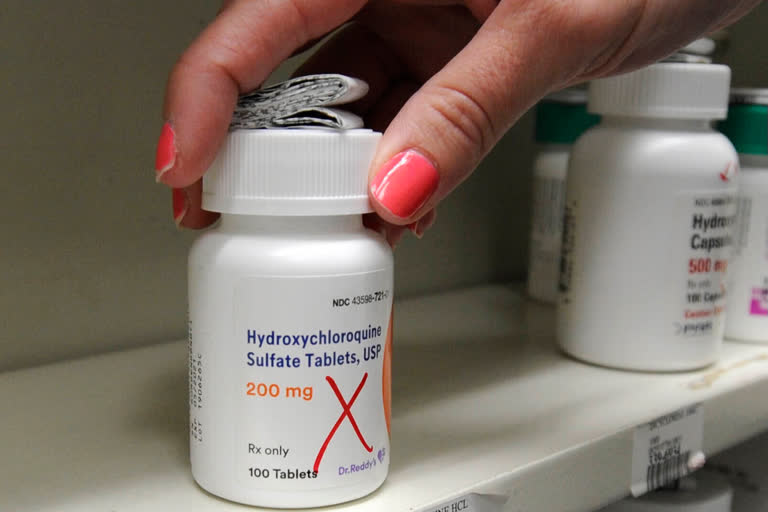Hyderabad: Hydroxychloroquine, the antimalarial drug which US President Trump Donald Trump wants from India to treat the growing number of coronavirus patients in his country, contains potential side effects including- heart rhythm problems, severe low blood pressure and muscle or nerve damage and damage to eyesight.
However, the most significant risk is HCQ-related retinal toxicity. Although HCQ is one of the safest drugs for autoimmune disorders, the current lack of consensus regarding the dosage is causing the issues.
A typical dosage for inflammatory disease in 200 mg twice daily, at this does the patient should weigh at least 176 pounds to not exceed the recommended maximum.
According to early reports, the suggested dosage for COVID-19 patients is 600-800 mg/day which is 3-4 times higher and can cause retinopathy.
Besides, people with co-morbid conditions are at risk from COVID-19 and research show that patients with kidney failures are at risk as HCQ is excreted through renal clearance.
Presence of any age-related macular degeneration can also turn out to be life-threatening when high doses of HCQ is consumed daily.
Hydroxychloroquine curbed coronavirus's ability to enter cells in lab tests, researchers reported last week in the journal Nature Medicine. That doesn't mean it would do the same in people or that they could tolerate the doses tested in the lab.
Read: Hydroxychloroquine for health workers and contacts of COVID-19 cases; not for everyone: ICMR
A report from China claimed chloroquine helped more than 100 patients at 10 hospitals, but they had various degrees of illness and were treated with various doses for different lengths of time. They also might have recovered without the drug — there was no comparison group.
The French study has attracted the most attention. Doctors gave hydroxychloroquine to 26 people with confirmed coronavirus infections, including some with no symptoms. Six also were given the antibiotic azithromycin.
Some of the 26 were not counted in the final results because they didn't complete the study — what's known as lost to followup — but that included three who worsened and were sent to intensive care, one who died a day after later testing negative for the virus, and one who stopped treatment because of nausea.
After six days, no patients are given hydroxychloroquine plus azithromycin had virus detected in swabs from the back of the nose, versus 57% of those given the malaria drug alone and 12.5% of some other patients who received neither drug.
That's encouraging, but many things could have affected the outcome, such as how sick people were, when they were treated, what other treatments they received, as well as their age, gender and underlying health conditions.
Hence, if prolonged use of HCQ is recommended for COVID-19 then retinal evaluation should be considered to limit the toxicity.



